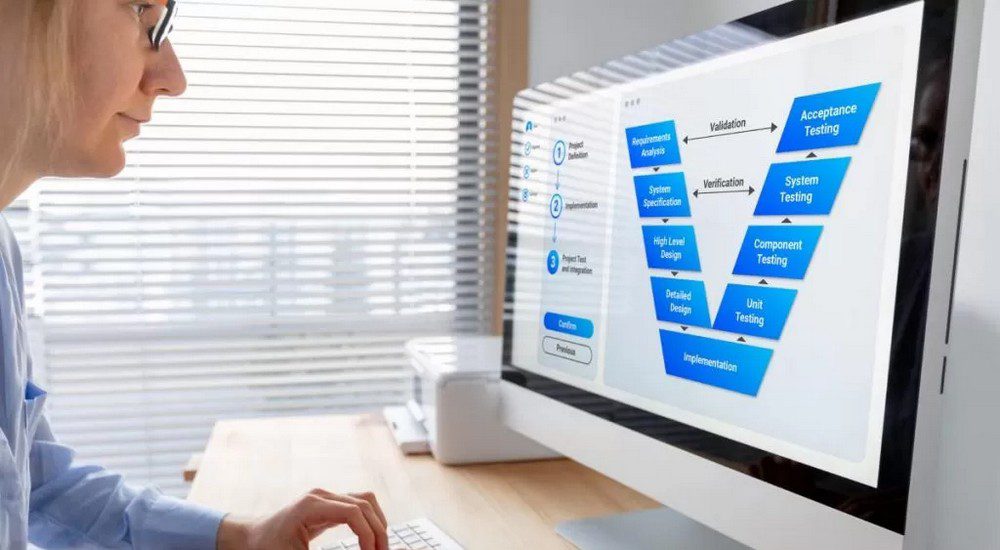Blog
Articles to grow your career
Article
Basics of Time Management for IT Specialists
Do you work overtime almost every day and feel tired all the time? Have you been in a situation when you missed a scheduled meeting or forgot an important call? If that sounds familiar, you need to work on your time management.
Time management is an increasingly necessary skill today but for many people, this concept is still not fully understood. It is important to learn how to be productive with a minimum of resources, energy, and time.
To spend time more efficiently, you need to understand what you spend it on: what tasks, activities, or actions. The following experiment can help with this. Choose one day and write down all your activities in detail from the beginning till the end of the day. It is definitely not easy, and this day will not be as ordinary as your usual day but in the end, it will be possible to recognize the main “time eaters”.
As real-world experience shows, the main “time eaters” include:
- incomprehensible goals (when it is not specifically stated what needs to be done)
- tasks are not prioritized;
- fear/inability to say “no” in situations that require it;
- a large number of tasks that require high concentration;
- lack of personal motivation;
- workplace distractions;
- unrelated to the job phone calls;
- colleagues distracting you during your work;
- insufficient delegation of work to subordinates;
- unorganized storage of information;
- sudden meetings.
The ability to manage time is the main tool helping to increase personal efficiency and achieve goals and plans, and here time management comes to the rescue.
The main methods of time management include:
1. Planning
Learn to write down all thoughts and plans in as much detail as possible, so that by opening the notes, you can quickly start working on the described task. In today’s world, almost everyone has a smartphone or a laptop. They are with us most of the day, and therefore it is possible, and even necessary, to use them for time management. To do this, you need to install the appropriate applications that are available in the Play Market and App Store (for mobile devices). These great tools provide the ability to quickly update records, schedule long-term events, and set reminders.
People are psychologically inclined to take on urgent insignificant matters, not paying enough attention to less urgent but more important. Solving urgent but not too important tasks, people often put off important and difficult ones, while they can still wait. But the next day, the same number of tasks is piled on the person. As a result, when the important task becomes critical you need to do it under stress.
2. Distribution of Tasks by Priority
Once the day is planned, the task of their social significance should be reconsidered. You need to prioritize the tasks to have time to do the planned things on the most difficult and busy days.
Make a to-do list at the beginning of the day or week, adding and removing scheduled tasks. And it is best to perform the most unpleasant or difficult tasks, which you often want to postpone “for later”, in the morning. This will help to get rid of the anxious feeling about the unfulfilled task, which will still need to be done. At the end of the working day, check and process the list. After spending only about 10 minutes in the morning and evening, you can gain complete control over plans, goals, and tasks.
3. Defining Goals and Setting Deadlines
Making plans and prioritizing tasks is a priority but it is followed by other equally important conditions. Everything that is done must be aimed at achieving any goal. And therefore, it is very important to establish a due time for planned tasks.
Deadlines are important for any goal or task. One of the causes of stress and anxiety is the lack of deadlines. Failure to first determine when you plan to complete a project or complete a task may result in pressure on the team hence hurting the overall team effort. Since not everything always goes as planned, and some problems may require going beyond the deadlines. To avoid such cases, you should always set some extra time.
4. Multitasking Is Not Equal to Fast and High Quality
In fact, if a person does several things at once, it only gives the illusion that they have time to do everything faster. Productivity remains at the same level if these tasks are performed one after another. But this very quickly has a negative consequence – fatigue, and, as a result, increased likelihood of making mistakes. This is definitely something to avoid. Therefore, it is necessary to perform tasks in turn, depending on their priority. The most effective result is achieved by concentrating on one task.
What methods can be used to prioritize tasks? It is worth noting several methods of dividing tasks by priorities:
ABCD
A – means critical tasks that need to be done right now. Such tasks can have negative consequences if they are not completed on time. When there are several critical tasks, you can also use the numbers: A-1, A-2, A-3.
B – means the tasks to be performed after the A-priority. They are less critical and do not entail such dangerous consequences but their implementation is no less important.
C – an action or task that would be good get done. It can be a trip to a store, walks with friends and so on.
D – tasks that can be delegated. If there is such an opportunity, it will be good to transfer part of the responsibilities to another person, provided that they can fulfill them.
Ivy Lee’s method
1. At the end of each day, write down the five most important things you plan to do tomorrow (5-6 tasks, no more).
2. Sort them by importance.
3. When starting work the next day, focus only on the first task at first. And after completing the first task, you can move on to the next.
4. Use the same approach for the rest of the list. If at the end of the day there are tasks left in the list – move them to the list for the next day (the list should still not exceed 5-6 items).
5. Repeat these processes for several days (this will become a habit and will be easier to do that every day).
There are many methods and approaches to time management today, and everyone can choose the method they like. But all of them will help to cope more effectively with tasks and skillfully manage their time.
Time management provides a huge number of benefits:
- be the first to achieve the set goals;
- perform a large number of tasks in a short period of time;
- always have a clear plan of action;
- no more constant fatigue;
- create comfortable working and leisure conditions and have control over your life (achieving goals and achieving success).
Do you want to join us?
Leave an application and get a free consultation from our manager.
- Help in choosing a direction
- Course consultation
- Additional materials for the start
This is just part of the positive impact that the ability to manage time has on a person’s life.
Summing up, we can say that in today’s world, personal time is the main and most expensive human resource, which has a much higher value than material goods. This is because it cannot be returned or changed. And that’s why it’s so important to learn this great art – time management!




